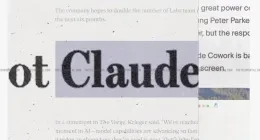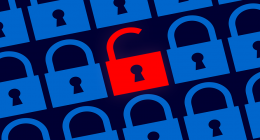Major technology behemoths are no strangers to claims of anti-competitive practices that define them as power hungry mercenaries who want to dominate the world. Google has long been caught amid various such claims over the dominance of its Android mobile OS. Now, Microsoft seems to be joining the ranks for allegedly abusing the dominance of Windows to restrict other security software from running freely on the platform.
Eugene Kaspersky, cyber-security expert and CEO of Moscow-based antivirus maker Kaspersky, has filed complaints against Microsoft in both the European Union and Russia. He has requested the official bodies to instruct the Redmond giant to suspend its anti-competitive legislation and “to remove the consequences of that violation.” Kaspersky has further detailed his observations with regard to the security products in his hasty blog post(or rant) titled ”That’s It. I’ve Had Enough!”
In the blog post, he mentions that Microsoft is wrongfully using its power to drown the competition on the security front. Talking in only metaphors, he starts off by rebuking Redmond for its strategy towards Windows 10 and it being a robust and complete service that promises “better ease of usage, security, performance and so on.” This action plan of Redmond, he says, is based around baking in free services similar to those already available to its users in the market i.e third-party antivirus software in comparison to Windows Defender.
But he then goes on to shed light on the arguments which led him to report the wrongful practices of Microsoft to the regulatory bodies of various countries. These revolve around the new Windows 10 update mechanism which automatically and without any warning deactivates all “incompatible” security software. Once through, it yet again hands over control back to its default security software Windows Defender, notes Eugene in the blog post.
Even when the installed antivirus software passes the compatibility test, Microsoft still prompts users to protect their PCs using Defender with a ‘big juicy’ TURN ON button after the update process. This undermines the third-party security software installed on their computer and users generally accept these requests – for they are from the software manufacturer. They believe they’re prone to harm and Redmond will help protect them – and the antivirus program they installed can’t?
This is, however, only a part of the bigger problem being faced by these internet security software manufacturers. The independent security softwares are lacking compatibility because of another ploy setup by the Redmond giant, says Eugene. Microsoft earlier used to co-operate with independent developers and provided them with a lead time of a couple months before releasing an update.
The company has now cut that short to a mere seven days which gives these developers little to no lead time to upgrade their offering before release. In addition, the rant also mentions the lacking Action Center which keeps notifications of expired softwares for over three days until Defender take over the security process.
The Russian antitrust authority Federal Antimonopoly Service (FAS) has launched an investigation into Microsoft after receiving the said complaint from Kaspersky, which reads:
We think that Microsoft has been using its dominating position in the market of operating systems to create competitive advantages for its own product. The company is foisting its Defender on the user, which isn’t beneficial from the point of view of protection of a computer against cyberattacks. The company is also creating obstacles for companies to access the market, and infringes upon the interests of independent developers of security products.
With regard to this report, Microsoft is said to be in violation of federal law ‘on protection of competition.’ Anatoly Golomolzin, Deputy Head of FAS believes that this leads to ‘unreasonable advantages’ for Redmond and the authorities will look into ironing out the creases to ensure equal conditions for all participants.
If Kaspersky is successful then Microsoft will have to oblige third-party security developers by providing them with ample time to upgrade their softwares to maintain compatibility with Windows. Post this, the authorities will also require Microsoft to exclusively inform users of incompatible software before updating and then again prompting them to install compatible versions after the upgrade. Also, the company will have to surrender the right to automatically turn on ‘Windows Defender’ and always ask the user if he’s willing to enable it or not.
In lieu to the complaint filed by Kaspersky, a Microsoft spokesperson has sent out the generic ‘long history of cooperation’ with Kaspersky statement to Engadget. They further add to work out the details with the authorities and obey the Russian law.
Microsoft Russia and Kaspersky Lab. has a long history of cooperation in different areas. Microsoft is committed to work in full compliance with Russian law. The company hasn’t received an official notification from [antitrust regulator] FAS. As soon as we get it, we will review it carefully.
The Tech Portal is published by Blue Box Media Private Limited. Our investors have no influence over our reporting. Read our full Ownership and Funding Disclosure →







